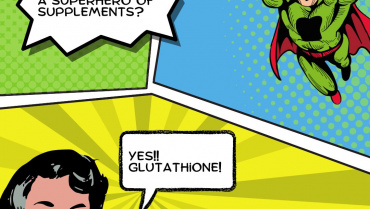We’re just about to head into the holiday travel season and I thought I’d share a lesson I learned recently about preventing the stiffness that often accompanies long car or plane rides. Plus I’ve got some additional tips to keep you healthy during this busy and stressful time.
This past summer, I drove from State College to the Adirondacks, an eight-hour drive when you include a few short stops.
I arrived with a horrendous crick in my back and barely hobbled from the car to our cabin, too stiff to move. That was not a fun way to start a brief vacation. I had forgotten to take care of my body by altering my supplement regimen to adjust to the long drive.
I was much smarter on the way home and arrived home with no issues at all, feeling limber and comfortable.
What was the difference?
Magnesium to the rescue.
On the way home I remembered the importance of increasing my magnesium intake. I normally take about 650 mg magnesium each day but on our way home I boosted it to 1800 mg on our driving day. It made a huge difference because magnesium is a muscle relaxant.
If you tend towards constipation, use the Magnesium Malate form. Magnesium Malate helps rehydrate the stool and soften it, making elimination easier. Keep in mind that tight back muscles can contribute to constipation. and relaxing the back muscles also facilitates easy bowels.
If constipation is not an issue use the Buffered Magnesium Chelate form of magnesium which will not affect the bowels.
If you’d like to hear more about the many benefits of magnesium, read HERE.
I thought I’d share a few other tips that have helped me over the years.
Zinc for Eyes
I find that my vision is very sensitive to my zinc status, especially as I get older. I now need a steady intake of 50 mg Zinc Citrate/day to be able to read without readers (it’s still a strain but I can do it ). If I get lax about this amount, within a day or two I can’t read a thing without glasses on my face. Please note that if you are in need of high dose zinc for more than a month you may need to take a little copper (usually 2 mg/50 mg zinc) with it to avoid an imbalance between those two minerals.
Vitamin C Needs
Other annoying symptoms that are easily remedied are bloody noses and bruising. These are most often a sign of Vita C deficiency.
How much extra Vita C should you take? Sometimes just an extra 12000 mg/day such as in a packet of over-the-counter EmergenC will do the trick.
If, however, you want to understand how much Vita C your body really requires, try this: take enough Vita C to cause loose stool and then reduce by 500 mg. This tells you that you have saturated your tissues with Vita C and have maximized it’s the cell-protective effect. For high doses use the Buffered Vita C powder, which provides 2000 mg/teaspoon.
These are things I talk about every day in the office. Now you can use these tips too!
BeWell,






Add Comment